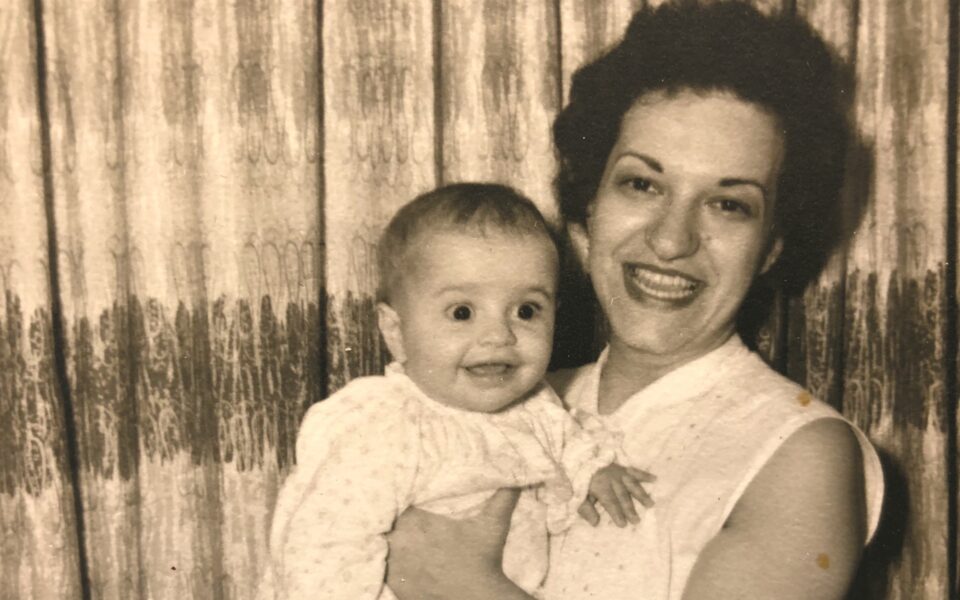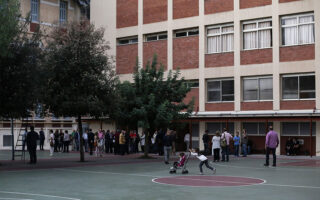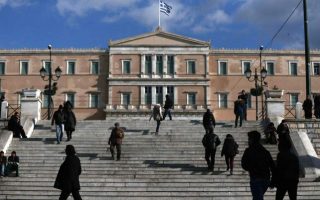The Lost Children’s long road home

These days of Easter, when we meet with beloved family and friends, and count our blessings and the dear ones lost, as we celebrate nature’s renewal and the expectation of Resurrection, our minds turn to a group of our people who were cut off from the nation’s body at a very young age many years ago and are now trying – persisting against many odds – to win back the Greek citizenship that they lost when they were sent abroad for adoption.
Between 1948 and 1975, some 4,000 children were sent (mainly) to the United States, the Netherlands and other countries, taken from orphanages and parents who could not raise them. For several years now, some 500 of these “lost children” have been trying to assert their right to be registered as Greeks once again.
Their exit from Greece may have been suspiciously easy, but their homecoming is proving very difficult. Bureaucracy and the unwillingness of officials turned out to be almost unsurpassable obstacles. Lately, though, these people have found greater support and understanding. The story of mass adoptions of Greek children by families abroad in the post-World War II and post-Civil War years became widely known in the mid-1990s. At the time, there was great publicity around allegations that many of the children had been stolen from their parents and been given for adoption illegally. It was only when Gonda Van Steen’s book “Adoption, Memory and Cold War Greece: Kid pro Quo” (Michigan University Press) was published in 2019 that the true dimensions of the story and the procedures that were used at the time became known.
The book mobilized many people who had suspected (or had been informed by their adoptive parents) that they were among these children. They set out to learn their stories and to reconnect with their land of birth. One of them was a journalism professor in California, Mary Cardaras. Since then, Van Steen, Koraes Chair at King’s College London, and Cardaras, now director of the Demos Center of the American College of Greece, have been fighting tirelessly for the adoptees’ “repatriation.” Close to 75,000 people have signed an online petition calling on the Greek Parliament to set up a special committee to help facilitate the adoptees’ access to their case files and to their registration as Greeks.
It is significant that the General Secretariat for Citizenship and Greek consulates abroad are showing greater understanding in dealing with requests for citizenship to be restored or acknowledged. Many people don’t have their birth certificates, which are demanded by officials, and it would be of great importance if the latter accepted the Greek adoption act and the Greek passport with which the children embarked on their new life. The Citizen’s Advocate, too, has been helping people with their requests for access to their files. Two adoptees have managed to achieve their goal, their homecoming, their “nostos.” But it has not been easy.
Perhaps the most important thing in this whole issue is for the stories of the adoptees themselves to be heard. Mary Cardaras’ book, “Voices of the Lost Children of Greece: Oral Histories of Cold War International Adoption,” (Anthem Press, 2023) is an invaluable contribution to this.
Self-assured or hesitant, angry or at peace, often sad, wise beyond words, these are the stories of children torn from their world when they were too young to understand, as they struggle through decades of silence and sorrow to solve the riddle of their lives before time runs out.
Each a personal journey of self-discovery in the most literal sense, these essays are the raw material of a national epic and also the most basic human quest, to know ourselves. In each, a child, disoriented and often alone on the edge of the abyss of unknowing, tries to understand why its world feels out of joint, why it is different to those around it, where it comes from, why it is where it is. Now, decades later, having found each other, having acquired voice, agency and determination, these women and men speak of their continuing struggle for knowledge and peace. Where they were once helpless victims of a state indifferent to their fate, they find that it remains implacably resourceful in finding ways to obstruct atonement — restoration of the nationality that was stripped from them when they were voiceless.
Mary Cardaras’s book is heart-wrenching, beautiful, sobering, valuable and illuminating — it is in itself a homecoming. In telling their stories, the women and men who were cut off from their roots are reconnecting with the body of a nation that knew nothing about this unspoken and, until recently, unwritten chapter of Greece’s history. This is a great step on an unfinished journey.





